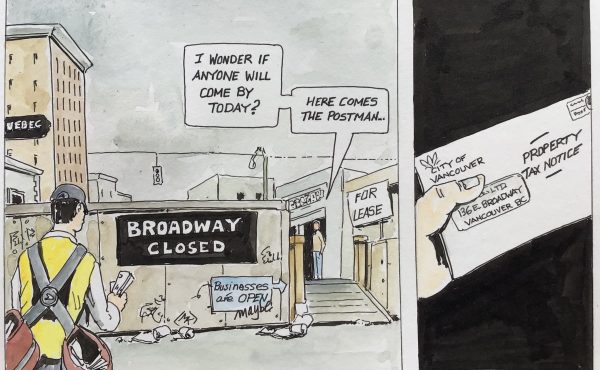Progress Lost, Progress Redefined, Progress Regained—How Location Efficiency Performance Measures Are Being Used to Achieve Economic Security
Scott Bernstein, President – Center for Neighborhood Technology
Thursday, March 22, 2012, 7:00 p.m.
Room 1700, Harbour Centre – SFU Vancouver 515 W. Hastings Street, Vancouver
ADMISSION: Free, but you must reserve a seat at: www.sfu.ca/reserve
The US, still reeling from a devastating recession, is far from recovery. Can households and regions prosper without spatial efficiency? New economic performance data strongly suggests the answer is “no.” Several measures, including a new index of combined affordability of housing + transportation, which cost households at least half of their available income, are being tested by federal agencies, metropolitan organizations, States and local governments. The results are encouraging.
Agencies taking combined affordability into account have shifted billions of dollars in long-term commitments from highways to transit; provided incentives for locational preference in in subsidized housing; and awarded capital intended to demonstrate the efficacy of place-based integrated resource strategies. A mortgage experiment outperformed the market, and generally there were fewer foreclosures in location-efficient communities. Similar results help justify a shift in water and drainage investments toward “green” infrastructure; from centralized energy supply to distributed networks; and in using both locational and time-based pricing within energy distribution markets.
From coast to coast, the evidence of the long-term job creation, job access, cost-of-living reduction, and cost-of-service benefits, which we’ll review, is mounting. For example, location-efficient neighborhood residents felt only one-quarter the economic “pain” felt due to gas prices by those in average neighborhoods, while those in the least-efficient places experienced their region’s highest foreclosure & bankruptcy rates.
Whereas a century ago, the Plan of Chicago inspired civic leaders nationally to plan monumentally, there has clearly been a shift toward planning for intended outcomes, with increased attention paid to local economic benefits. The challenge ahead lies in “putting the place
back into marketplace.” This lecture will review the state of knowledge of the value of location efficient communities and regions and suggest a strategy for getting beyond “flying blind” in the pursuit of sustainable economies.
About the Speaker
Scott Bernstein is President of the Center for Neighborhood Technology; a 33 and 1/3 year old urban sustainability innovations group which promotes sustainable communities by helping local leaders to understand and use their hidden assets. CNT received a MacArthur Award for Creative & Effective Organizations. Scott was appointed by President Clinton to the President’s Council for Sustainable Development and by Governor Pat Quinn to the Illinois Economic Recovery Commission and helped launch the Presidential Climate Action Program, which delivered an action plan for incoming President Obama. He’s known nationally for leadership in measuring and promoting location efficiency and its application to urban economic development, in applications ranging from mortgage lending to foreclosure prevention to climate protection.
Scott served on Chicago Mayor Richard Daley’s Climate Change Task Force for which CNT prepared a greenhouse gas emissions baseline and mitigation plan. Recent work includes a review for the Transportation Research Board of the National Academy of Sciences (The Route to Carbon and Energy Savings: Transit Efficiency In 2030 And 2050), development of the GHG accounting protocol for the world’s largest cities for the William Clinton Foundation, creation of a new Transportation Energy Efficiency Index and data base for the US Green Building Council, and a variety of web-based accounting and planning tools based on this applied research.
***




